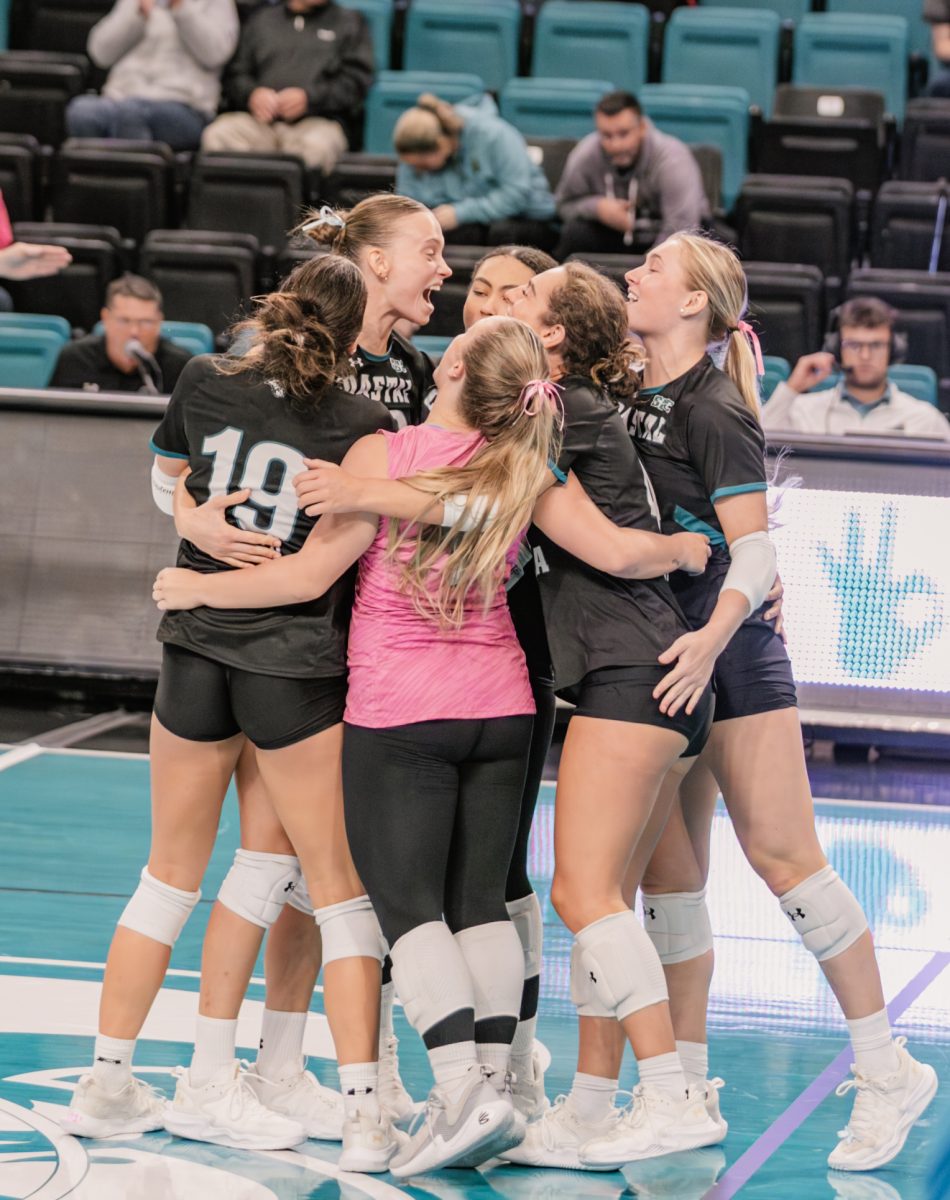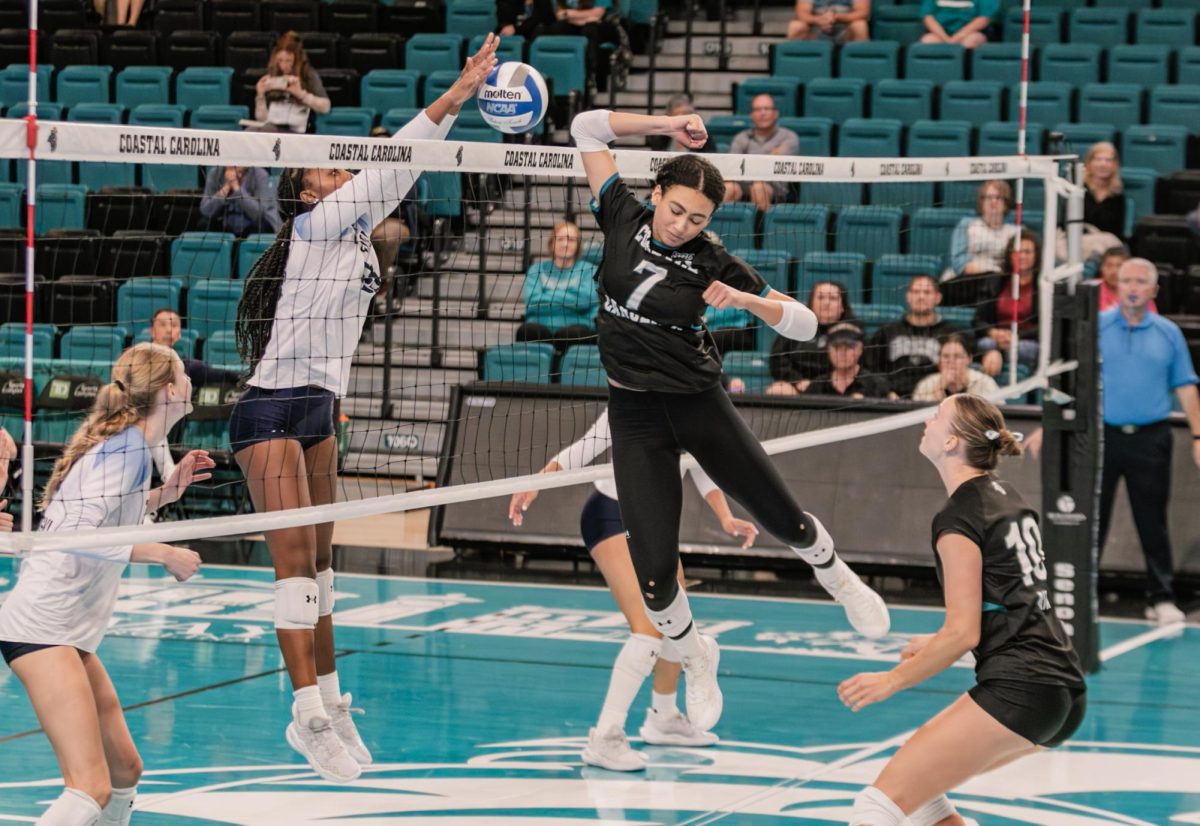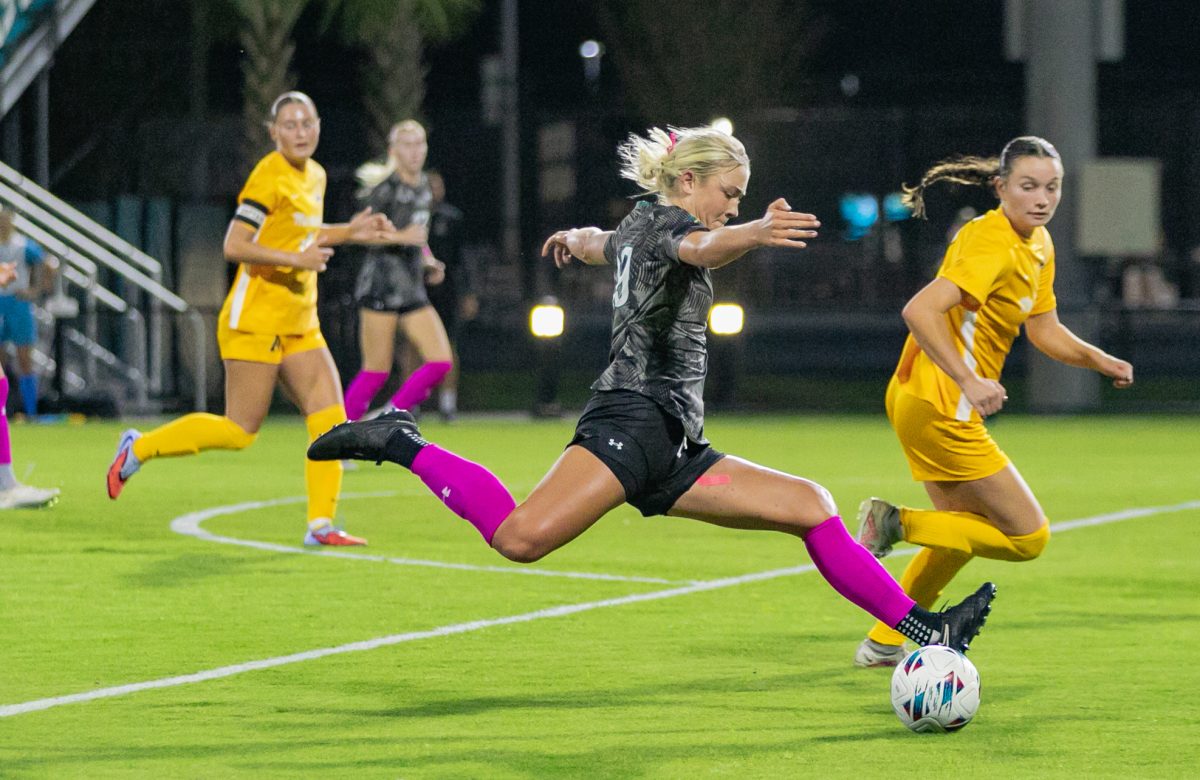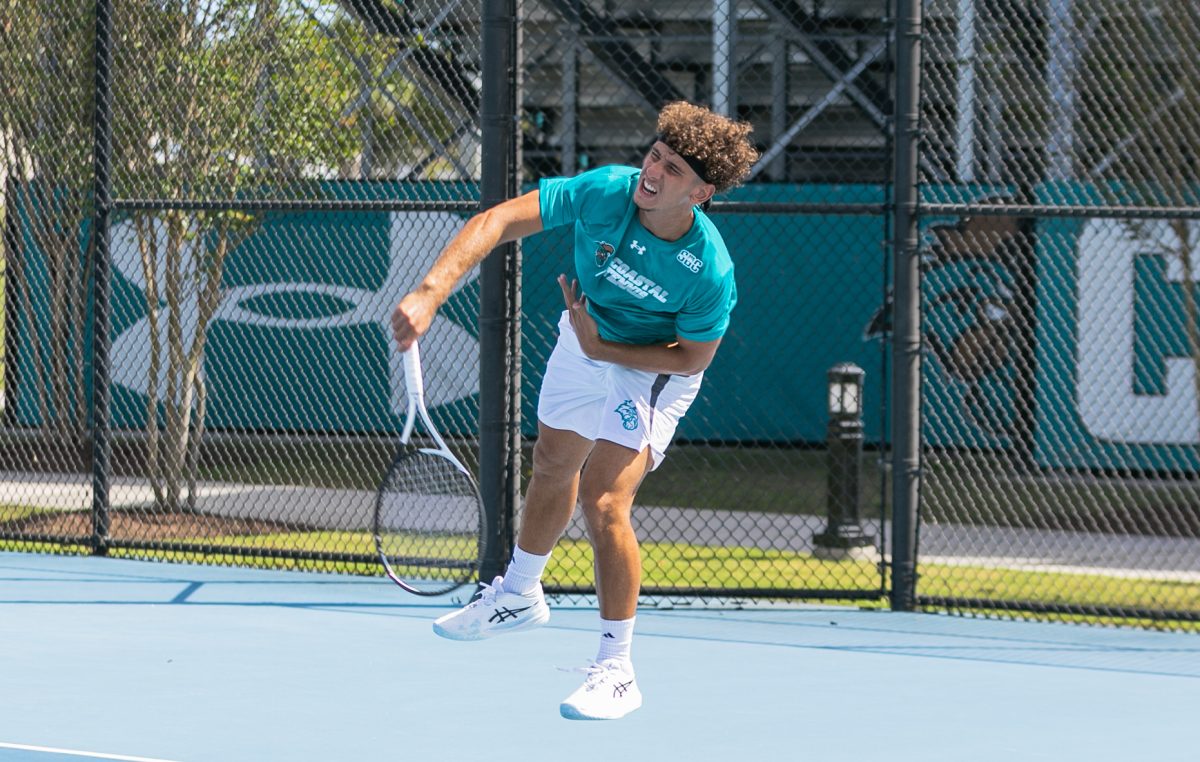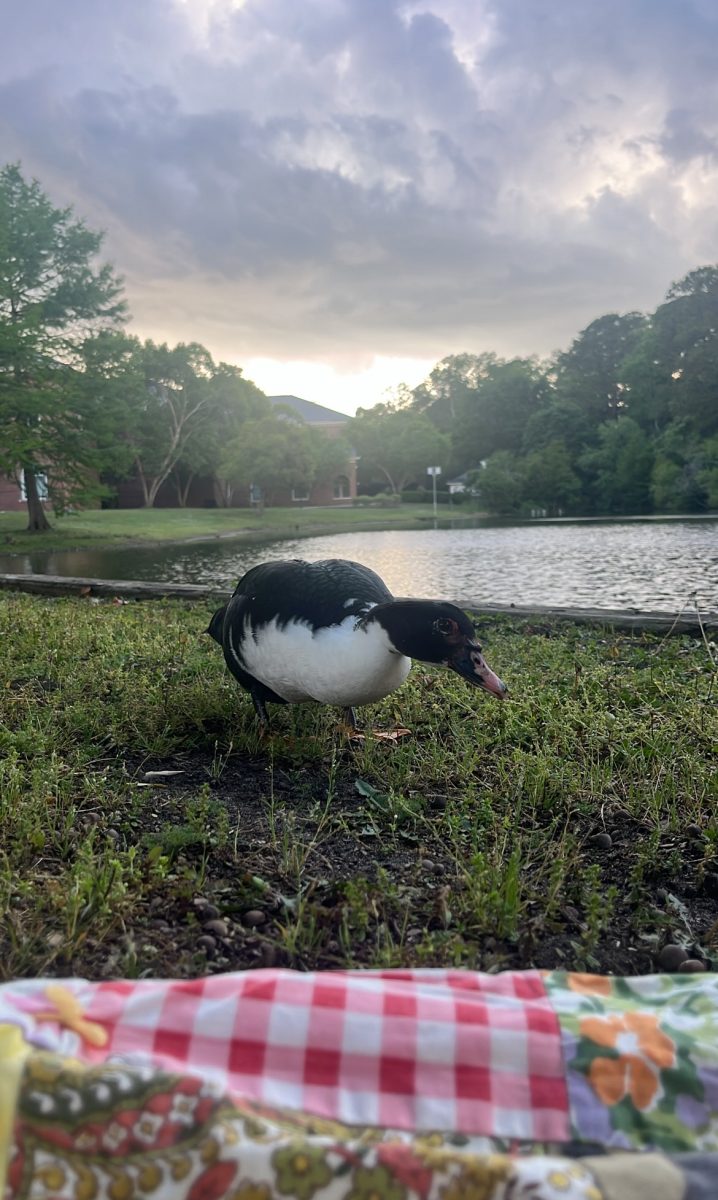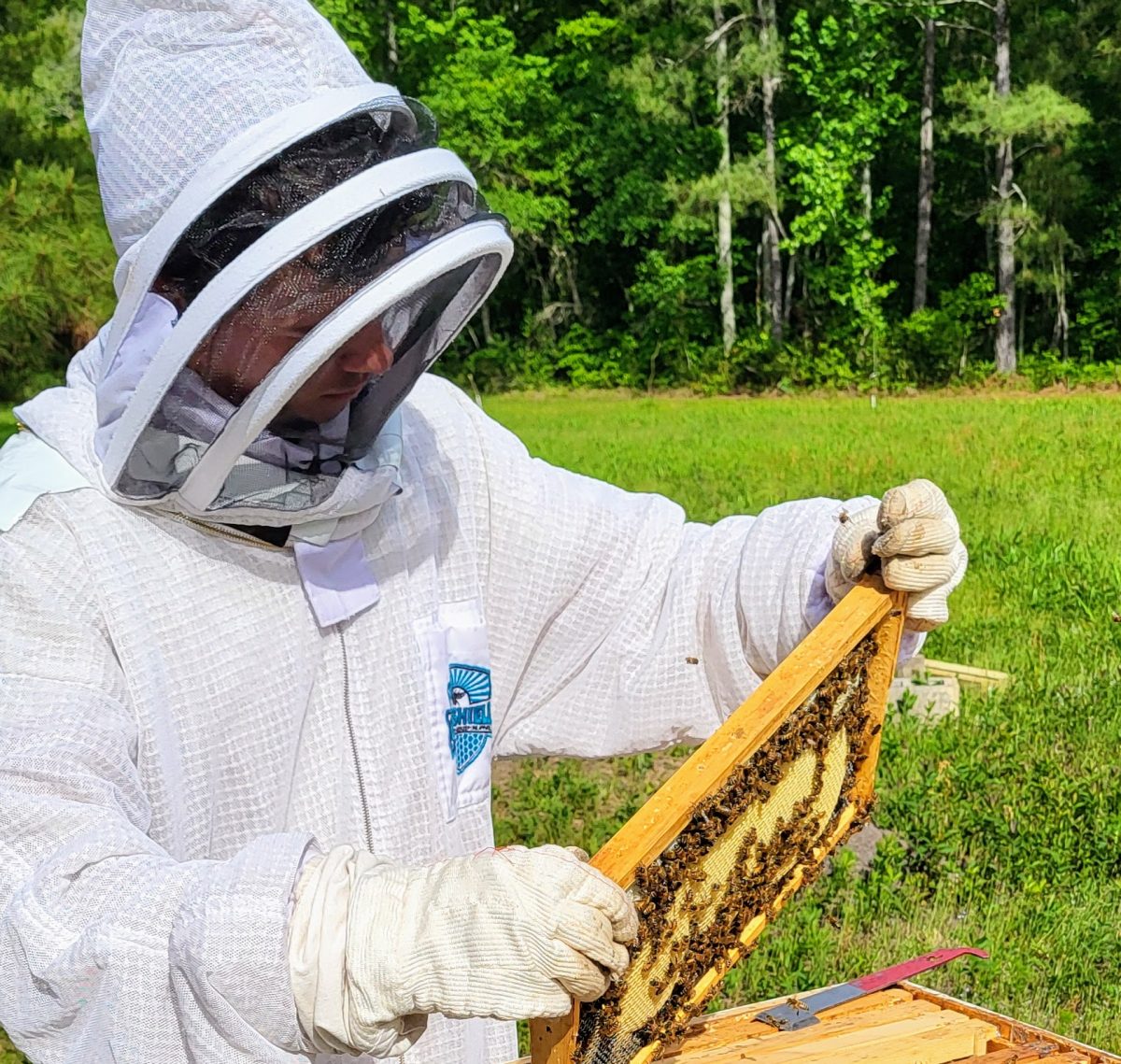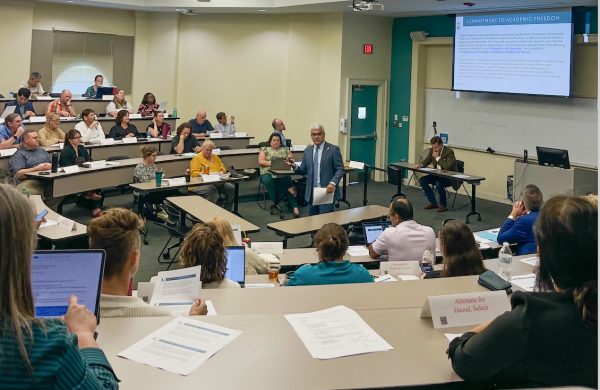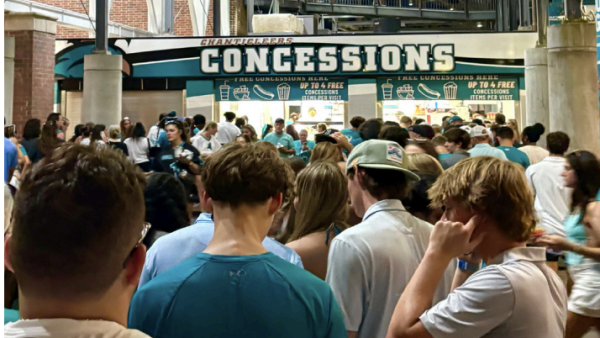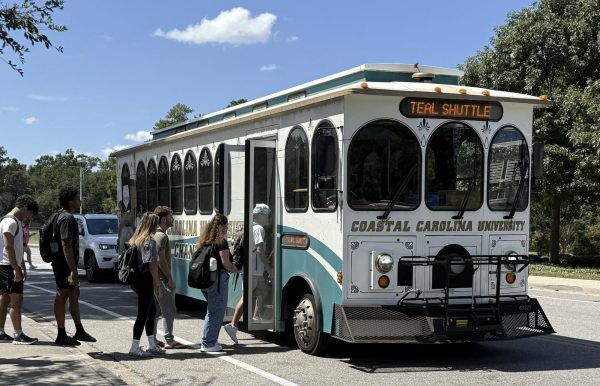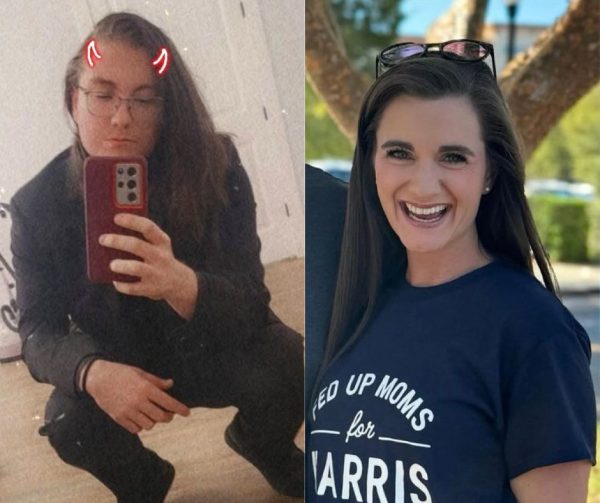Coastal hosts its first undergraduate research symposium for Spanish health professions minor
The Department of Languages and Intercultural Studies hosted the first ever Undergraduate Research Symposium for Spanish in health professions, an event dedicated to students showcasing and discussing their research projects about health issues in Spanish speaking communities.
The event took place on April 5 and featured students pursuing the Spanish in health professions minor. Edurne Beltrán, an assistant professor of Spanish, said the minor has seen a lot of popularity and said it is one of the fastest growing minors at CCU.
Beltrán said the minor is relatively new, with the 2021-2022 academic year being only its second year running. While the minor is for medical professions, she said it also includes dentistry and psychology. She said the symposium was meant to teach students what it takes to become a medical interpreter.
Beltrán even talked about her own experience helping people translate in her personal life.
“Being multilingual forces me to help others translate or interpret when the situation arises,” she said. “My mom can only speak Spanish and I always hope she will find others who can help her if she needs from a language interpreter and I’m not around.”
Nick Parker, a student who participated in the symposium, did a research project about the demand for Spanish medical interpreters. He said there are 20,000 interpreters in the U.S.
“I wanted to look into how more than half of health insurances and hospitals don’t have Spanish translators,” Parker said.
He said he found the number of medical interpreters in America isn’t meeting the needs of growing Hispanic communities. Parker said as those communities grow, the amount of people who are uninsured grows with it.
“A lot of Hispanic people work in the service industry,” he said, “and lot of them don’t provide healthcare.”
Parker said medical terminology can already be difficult to understand in English, which makes translation even more necessary.
Barbara Gasquet Carrera, a Spanish lecturer at Coastal, talked about her experience in the medical interpreter field. Coming from Spain, she said she did a summer internship in a U.S. hospital when she was a student. Carrera said the difficulties can go beyond language barriers when it comes to Spanish interpretation.
“Even though I speak Spanish,” she said, “I don’t share the same culture.”
Carrera said that despite the shared language, she felt Mexican patients still saw her as foreign. She said it was often difficult to discuss certain medical topics between different cultures. For example, she said discussing women-specific health issues was more taboo in Mexican culture than in Spanish culture.
Also featured at the event was a presentation by Breanna Salvino, a CCU graduate who became a certified medical interpreter. There she talked about her experience learning Spanish and the importance of interpreters in the medical field.
“Speaking Spanish as a second language in the healthcare industry helps patients feel more at ease and confident in the care they’re receiving.” Salvino said.
She also talked about her process of learning the language. Salvino said she went from knowing no Spanish to being bilingual in three years. She said she managed to do this through a combination of immersion techniques.
These included listening to Spanish music, watching TV shows in Spanish, and rewriting all her school notes in Spanish. Salvino even said she worked at a Mexican restaurant while in school, where her co-workers helped her learn by only speaking to her in Spanish.
“I’ve always been fascinated by other cultures, but never immersed myself before,” she said.
Salvino added that learning can be nerve-racking, but it could be done through practice. Beltrán had a similar opinion, talking about how they want students to know they don’t have to be speak Spanish perfectly while learning.
Beltrán said the Language and Intercultural Studies department was supportive with organizing this event and she hopes to continue it every year.





